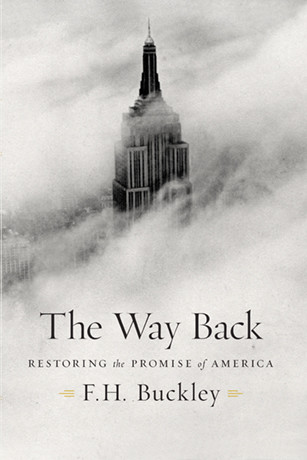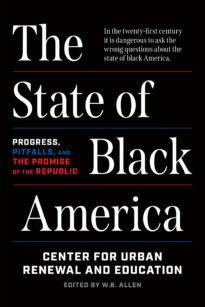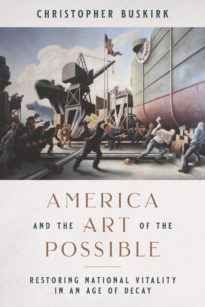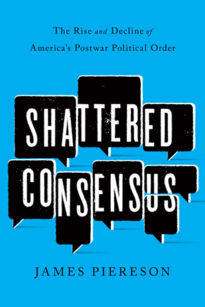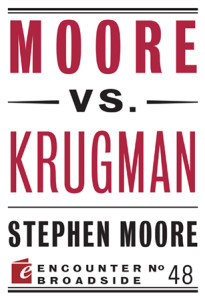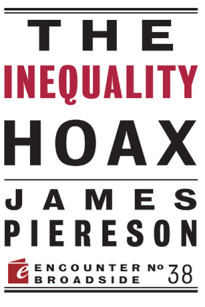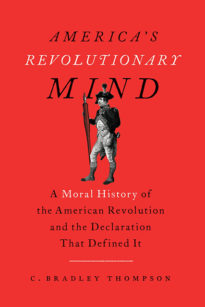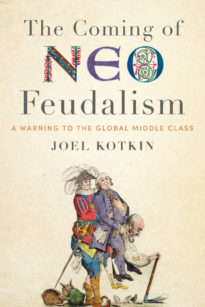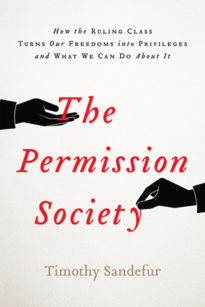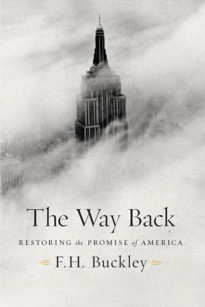In 1977 the United States launched the Voyager space probe with the goal of explaining planet Earth to the residents of other galaxies.
Aboard was a gold-plated phonograph record, bearing greetings from UN Secretary-General (and former Nazi officer) Kurt Waldheim, as well as a sample of our music: Chuck Berry’s Johnny B. Goode and three pieces by Bach. We don’t know what the space aliens might have made of this. Saturday Night Live reported that we received a message back: Send more Chuck Berry. For his part, William F. Buckley thought that three selections from Bach was rather like boasting, but if so this was remedied by Jimmy Carter’s lugubrious message: “This is a present from a small, distant world… We are attempting to survive our time so we may live into yours.”
Notwithstanding its provenance, there wasn’t anything particularly American about what was on the record. Suppose, then, that you were charged with selecting a single text (this time on a flash drive) to explain America to Kurt Vonnegut’s Tralfamadorians. Would it be the Constitution? The Declaration of Independence? The Gettysburg Address? Very reasonable suggestions, all of them, but I’d choose a much-derided children’s novel by Horatio Alger, Ragged Dick. The book is never read today, which is a shame, since it is as witty as anything by Mark Twain and Alger’s street-sharp little urchin provides a fascinating look at the streets and slang of nineteenth century New York. Dick has the wiles to escape the con man’s snares, but he isn’t a thief and has a personal code of honor. He’s also ambitious and smart enough to profit from the book’s simple messages: that all labor is respectable, that poverty is no bar to advancement, that getting ahead requires education and saving one’s money.
Those unfashionable messages, and not a lack of literary merit, explain why the book is scorned today. It celebrates, unabashedly, the traditional American virtues of open-handedness, pluck and optimism. Mostly, it’s a book about mobility, about making it in a country that welcomed those who wished to get ahead; and that message, not the Constitution or the Declaration, is at the heart of the idea of America. A boy with Dick’s drive, intelligence and honesty would make his way where others lagged behind, for mobility wasn’t the same thing as equality of outcome.
Ragged Dick is very much an American hero. Other cultures don’t celebrate the rags-to-riches arriviste as Americans do. In France, Molière’s Le bourgeois gentilhomme mocked middle class pretentions, and Honoré de Balzac told us that great fortunes which came out of nowhere were built on crime. The English gave us “ill-bred” and “bounder,” words never heard in America. For the lowly born Pip, the dream of advancement was a cruel illusion in Charles Dickens’ Great Expectations. Not surprisingly, things were worse still in Russia, and in Dostoyevsky’s Raskolnikov the desire to rise bred a murderous resentment.
Even in America, twentieth century writers lost faith in economic mobility. F. Scott Fitzgerald seemed to agree with Balzac about the criminal origins of new money, since the Great Gatsby’s wealth came from illegal bootlegging. As for the promise of economic success, Arthur Miller lectured audiences on its hollowness. But America was a mobile society for most of the twentieth century, and during Horatio Alger’s time—the late nineteenth century—a good many people followed Ragged Dick’s path up the ladder. More recently, however, the ladder has been rolled up, and Alger’s America is another country. The level of income inequality today is higher than at any time in the last 90 years. There’s even less mobility in America than in most First World countries. That’s new, and it will transform American politics. Perhaps we’ve already seen this, in the 2012 presidential election.
While income disparities became a major political issue in 2012, income immobility is a much more troubling concern. We might be prepared to accept the fact of deep income inequality if we thought that everyone stood the same chance of getting ahead, and that people were sorted out by their abilities. Ragged Dick is a desperately poor, orphaned bootblack, but he’s accepted as an equal by his wealthy friend, Frank Whitney, and we’re led to believe that they’ll end up in the same place. Henry Fosdick, honest and intelligent but lacking Dick’s ambition, will find himself a rung down on the scale. Johnny Nolan, honest but lacking in both intelligence and ambition, will end up yet another rung down. Those at the very bottom are not even honest, and an unpleasant end is prophesized for them. The book had a political message of course, but so too does the modern novel that asks to be admired for its vision of social justice.
The thought that one’s children would have a better life is what brought immigrants to North America in the first place. Those who arrived at Ellis Island knew they’d have to struggle, but they believed their children would have a fair shot at life, with opportunities that would have been denied them in the old country. So long as the children might reap, their parents would sow. Should that no longer be the case, should America offer no better opportunities for advancement than other countries, then the core understanding of American Exceptionalism will have been lost.
This would be a tragedy, for income inequality and immobility are serious problems, and we’d all want to return to the levels of income equality and mobility of 50 years ago, if we could leave everything else the same, if we could do so without cost. That suggestion might upset my friends on the Right who refuse to see income inequality and immobility as problems. But then I’ll also upset my friends on the Left by arguing that their cures for inequality would often be worse than the disease. There are, however, solutions that should please friends Left and Right, which would give us an economy both wealthier and more just, an entrepreneurial society in which people would have a better chance of getting ahead. We’d all want to go there—unless we were one of America’s aristocrats.
Things We Can’t Change
As an ideal, income mobility wasn’t there at the country’s formation, but emerged later when Lincoln and the Civil War gave America a new birth to freedom, in which the opportunity to rise above one’s station came to define the country’s promise. If one had to pick the crucial moment it would be a little-known speech by Abraham Lincoln at an agricultural fair in 1859, when he worked out the implications of the Declaration of Independence in a country that was still half slave. From this everything else followed, the Civil War, the land grant colleges, the open door policy for immigrants, Ragged Dick’s America.
Today, however, the United States is a highly unequal society and, what is worse, a highly immobile society as well. Jobs have expanded at the very top and bottom of the economy, while middle class jobs have cratered. That’s regrettable, for countries with greater economic equality have higher levels of civic participation and personal trust. People feel better about each other when the game doesn’t seem to be rigged against them. They’re also happier and less likely to support demagogues who promise greater equality but would restrict political freedom and threaten the rule of law to attain it. Finally, inequality and immobility are unjust when they are derived from special favors the government grants to its political friends and cronies.
So we’d want more income equality and mobility. Easier said than done, however. People on the Left have argued that inequality might go away if we could only raise taxes on the rich. However, the top U.S. marginal rates for individuals and corporations are amongst the steepest in the world, and capital gains taxes here are much higher than the First World average. Attacks on greed aren’t going to do very much either. The acquisitive instinct (to give it a less emotionally charged name) is coded in the DNA of the species, and I haven’t heard of plans to rewire our brains to eliminate it. In any event, as greed is ubiquitous, it can’t explain why there’s more inequality in America than elsewhere.
Nor are there any magic fixes in our welfare system, which is one of the most generous in the world. Not only is this a pretty good country to be poor in, but people at the bottom rung in America are amongst the richest people in the world. Moreover, the kinds of welfare improvements that get proposed are often self-defeating. For example, increasing the minimum wage would benefit some workers at the margin, but would also hasten the trend to automation, with store clerks replaced by check-out kiosks. Between 2007 and 2009 a Democratic Congress raised the minimum wage from $5.15 to $7.25 an hour, this as the economy plummeted and unemployment skyrocketed. There’s no evidence that the higher minimum wage did workers any good.
Then there’s the move to an information economy, free trade and globalization. In the recent past, good jobs awaited high school grads on the assembly lines and in the factories of America, jobs that gave people a solid and secure footing in the middle class. Those jobs are increasingly a casualty of an economy that requires higher levels of skills, however. High-tech jobs have increased in number, while low skill jobs are disappearing. In addition, free trade has moved low-tech jobs to countries with lower labor costs, while at the same time increasing the number of high skilled jobs in America. Globalization brings Third World people into the middle class, but shrinks the First World’s middle class.
We might not like what this has done to income equality and mobility, but there’s not a lot we’d want to do about it. Or could do. We can’t smash our computers, the way that 19th century Luddites smashed cotton looms, and expect we’d be doing anything other than shipping more jobs offshore. The same goes for free trade. Lower trade barriers have greatly strengthened the economy and increased jobs overall, as American companies became better able to meet the challenge of foreign competition. A retreat from free trade would also encourage firms to incur the deadweight losses of lobbying for sweetheart trade barriers from politicians, in order to protect the firms from foreign competition.
There are also several reasons why we’d never expect to see perfect income mobility between generations. First, it always helps to have the head start that wealthy parents give one: better schools, better networks, better first jobs. That’s why countries with high levels of income inequality are also countries with low levels of income mobility. From rich parents, rich kids. Second, and relatedly, the environment in which children are raised matters. Children raised by wealthy parents are less likely to come from broken homes, and will learn by example to value education. Compared to poor children, they’re exposed to a much higher social and cultural environment. In addition, there’s a developing empirical literature suggesting that the personal qualities (“phenotypes,” for the geneticist) that are correlated with economic success are heritable. That is, we’d expect to see some correlation between the personal (phenotypic) attributes of parents and children. A lot of things we thought to be random or a product of our environment seem now to be inherited, and this might also be true of the things which make people wealthy. If Lady Gaga was born that way, why not the rich?
The Aristocrat Abides
A degree of aristocracy is thus to be expected in any society, and not merely expected but also natural. We are apt to think that economic inequalities are self-correcting, self-arighting, but it’s not so; and the natural rights lawyers who said that all men are equal lied to us. Instead, equality cuts against the grain, and what is natural are differences, the differences between rich and poor, high and low. What is natural is aristocracy, the natural default position of any society, and not just aristocracy but an hereditary aristocracy. What is unnatural, unexpected, anomalous, the briefest of interludes in the world’s long history of class and clan divisions, is Ragged Dick’s America.
For a hereditary aristocracy to arise, only two things are needed, common to all of us. The first is a bequest motive, the desire to see our children do well, a sentiment that does not require an evolutionary explanation, but one which I nevertheless provide in chapter 13. We are hard-wired to seek to pass on our genes, and this means that, like Deuteronomy, we distinguish between strangers and brothers. We’ll be willing to incur enormous sacrifices for children and near relatives, but for strangers to whom we are not related we have only a constrained sympathy. What that will leave us with is a world of family ties and the thick nepotism where sons succeed fathers in politics, business, Hollywood, art and music.
The bequest motive is one of the strongest human impulses, stronger even than the instinct for self-preservation. We read of parents who give up their lives to save their children, and marvel at this. But would we have done anything else? We were told we were members of a “me” generation, but it’s not so. Instead, we sacrifice for our children, only dimly aware of the costs we incur in doing so, unless perhaps we recall how our parents sacrificed for us. If we should then want to see our children end up on top, in an aristocratic society, is that so very surprising?
The second needed thing, for an aristocracy, is relative preferences. We have absolute preferences when we want something, and relative preferences when we also want more of it than the other fellow. And as we wish well for out children, we would want them to fare better than other people’s children. We would be willing to accept a poorer world, so long as our children end up on top. We might even prefer a world that leaves our children worse off, so long as everyone else fares worse still.
That’s enough to kick-start an aristocracy. But for an aristocracy to persist over time, its members must be able to identify each other and form an alliance against the new men who wish to rise. Through their schools, their neighborhoods, their politics, they must be able to recognize each other. And of course the members of America’s elite can do so. They’ll have gone to Harvard, not Podunk U. They’ll live in Wesley Heights, D.C., and not Manassas, Va. They’ll subscribe to liberal politics and abhor the Tea Party. In all of this they’ll recognize each other as members of a New Class that constitutes the country’s elite and frames its policies, and in this way a society of peers and peasants has replaced Horatio Alger’s country of equal opportunity.
Rising inequality in American has been blamed on the “one percent,” the people in the top income centile making more than $400,000 a year. For those making less than that, bumper stickers on cars proclaim their drivers to be members of the 99 percent. The distinction between the two groups is useful, since income tax data permits us to identify the one percent. We know what they earn, what their jobs are and how they came by their money. They can serve as proxies for inequality generally. In truth, however, the one percent includes a very disparate group of people, the entrepreneurial gazillionaire and the car dealer making just a bit more than $400,000 a year. But it also includes members of the New Class whose unearned privileges are more questionable, who were given an unjust head start.
What I would do, then, is direct attention away from the superrich whose wealth is derived from their entrepreneurship, their energy, their ideas, their basketball skills, their Hollywood films. As members of the one percent, they were the villains of the Occupy movement of several years back. Yet there is nothing intrinsically objectionable about a one percent. By definition, every society has one. Let us turn, then, from the risk-taking entrepreneurs who constitute the very wealthiest of Americans, the 0.1 or the 0.01 percent, to the risk-averse members of the New Class, the one, two or three percent, the professionals, academics, opinion leaders and politically connected executives who float above the storm and constitute an aristocracy. They oppose reforms that would make America more mobile, and have become the enemies of promise.
Every society has its upper classes, richer and more powerful than the common herd. In America, however, they form a tighter group, with their distinctive set of jobs, neighborhoods and beliefs. By comparison, the House of Lords and Académie Française are highly democratic institutions. In our personal habits, there’s also a widening chasm between America’s New Class and those just below it on the scale. Charles Murray and Robert Putnam tell us that America’s middle class increasingly mimics the underclass in the destructive vices, such as unwed birth and divorce rates, that are apt to condemn one to poverty. Crucially, America’s New Class wields a vastly disproportionate political power, almost unmatched in the First World, and supports policies that burden the Ragged Dicks. If we’re less mobile than we used to be, that’s importantly the reason. Technological change, globalization, genetic advantages, even greed, are to be found everywhere, and can’t explain why we are so much more unequal than the rest of the First World. What those countries lack, however, is an elite with the clout of America’s New Class.
